Baker: description of the profession, responsibilities and necessary skills for the job
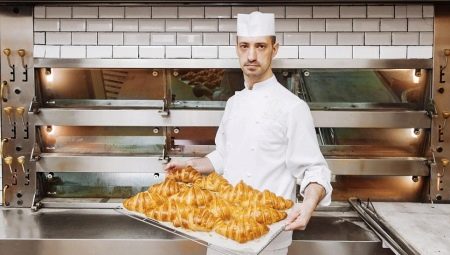
The idea of the profession of a baker in the minds of many people is vague - "does something with flour, it turns into bread and some other tasty dishes." But working in a bakery is much more interesting and at the same time has a number of specific features. It is very important to understand what the responsibilities of a baker are and what skills are required for this job.
Description of the profession
The main job of a baker is in fact connected with flour and flour products. More precisely, this specialist bakes bread first of all, and everything else is in the background for him. It should be understood that bakers work alone only in small bakeries. At any large factories and bakeries, they constantly interact with other employees. Good professional works confidently with a wide variety of flours and always knows how to use them correctly.
In a restaurant kitchen, the job of a baker is usually a chef. However, narrow specialization has its benefits - it allows you to deeper study the area of \ u200b \ u200bthe activity and achieve greater success in it. It should be borne in mind that the bakers appeared later than the cooks and for a long time were in their shadows. The reason is simple: only in the twentieth century there were a lot of people who are ready to buy baked goods, and not work on it on their own. The requirements for the bakery profession are quite complex, and it itself has been broken down into a number of specializations.
Despite the fact that the work is carried out in warm and dry conditions, high heat and constant contact with flour are harmful to health. In small bakeries, the microclimate is better than in large bakeries, however, microwave radiation acts there.
The baker must be hardy and physically strong, must have good taste and good eye.
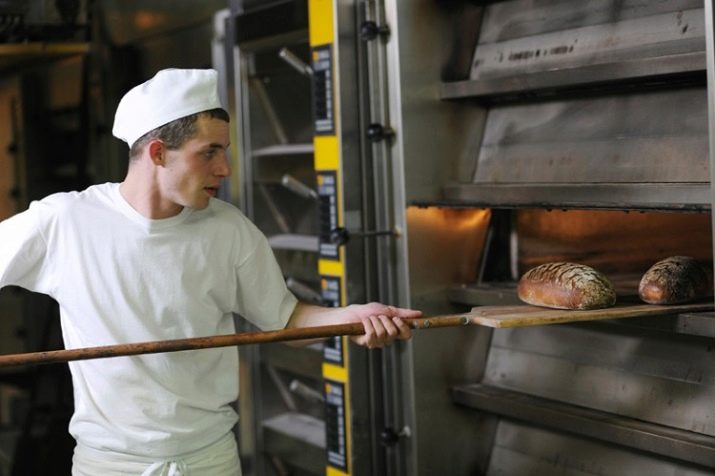
This profession is definitely not suitable for the following categories of citizens:
- suffering from ailments of the heart and nervous system;
- people with low vision;
- patients with diabetes mellitus, other hormonal disorders;
- affected by skin allergies;
- suffering from problems with the musculoskeletal system.
Varieties of bakers
The pastry baker accepts raw materials, and this is not only flour, but also various additives, preservatives. This specialist checks how high-quality raw materials have arrived, ensures their warehousing and storage. But all this is just a "prelude" to the main work - that is, the production of dough, other required additives and substances. When the dough is done, it still has to shape, monitor the rise, bake and decorate. In sum, it turns out that the baker-pastry chef is the most versatile of all his colleagues.
It is also worth clarifying that it is he who monitors the quality of semi-finished products and manufactured products. It depends on this person whether various defects in bread and grain products will be missed. Baker-pastry chef in large enterprises, finished products are packed using machines, and in canteens and restaurants, they are packed manually.
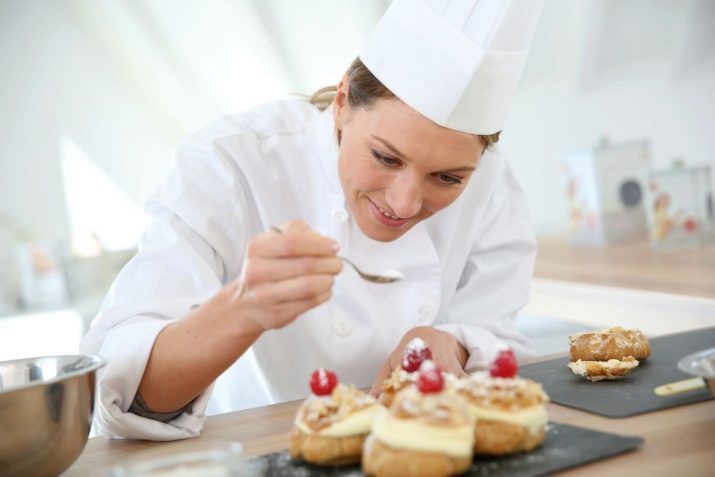
Craft is a slightly different matter. baker-tandoor. This is a relatively simple day-to-day job, mostly typical of Asian cuisine. Tandoor workers work in the manufacture of bread, for the most part they do not have to prepare the dough - it is brought to the site in a pre-made form. All that is required of the performer is to fill the counter with fresh bread, monitor how quickly it is disassembled, and display new lots as needed.
Despite the monotony of work, it is not a problem for ordinary people.
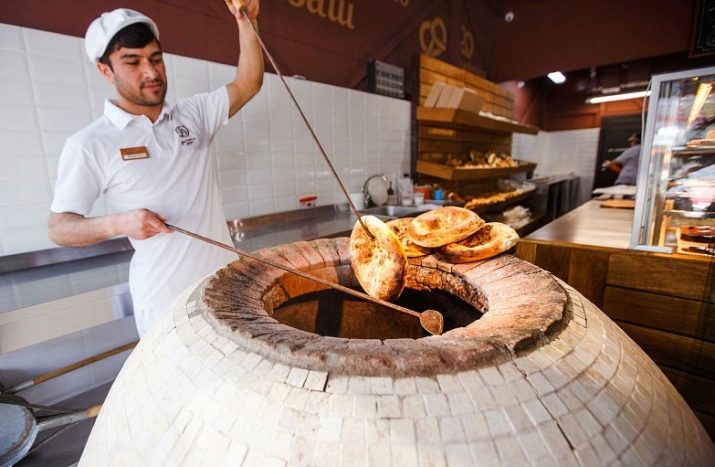
And here baker-technologist - this is already a higher-level specialist. Such an employee does not so much bake something on his own, as he makes sure that everything is baked correctly and according to the standard, and it is he who will have to control the freshness of everything that is sold to retail or wholesale customers. The role of the technologist in ensuring sanitary standards is no less important. It depends on him whether customers will feel safe or not. One mild poisoning is enough to lose several customers, and if the story gets out in the media, even a large bakery can quickly go broke.
The technologist also controls the planned markup. He must not forget that bakery production is not a world of free artists, but a verified enterprise, which must have clear economic indicators. The profit directly depends on the margin, but you cannot make it very large - then the clientele will quickly begin to choose more profitable points. Baker-technologist trains new employees in work technologies adopted in a particular place.
And yes, it is he who will have to check whether someone makes mistakes, to introduce clear standards.
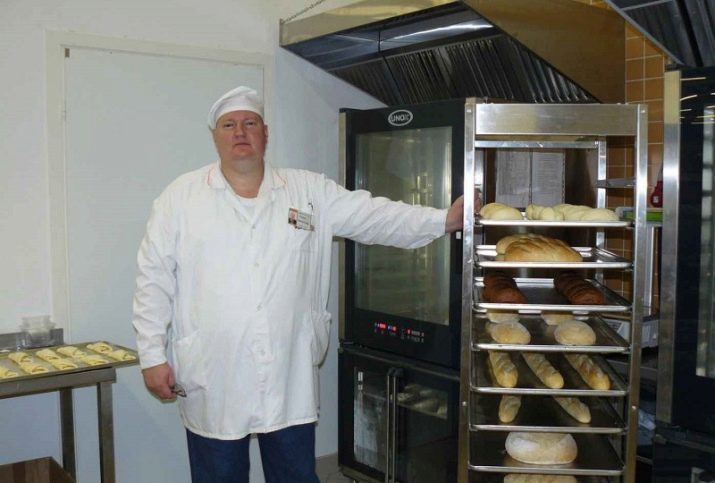
Ready-made manufacturing standards also need to be able to be applied correctly. Technologists provide other personnel with all the required materials and place them in the right places. The baker-technologist is also involved in the certification of other employees. Attestation has to be carried out monthly in the form of oral or written text, seeking to identify weak points and missing knowledge. Once a week, the baker-technologist monitors the production of employees.
The dough baker is engaged in the preparation of dough from raw materials strictly according to the technology previously developed by other specialists.... This specialist also makes sure that all the equipment works flawlessly, so that the flour and water supply is uninterrupted.The dough is evaluated not only by its external perception, but also by its taste. The required quality is ensured by adjusting the dosage.
A related field of activity is the operator of the dough cutting machine.
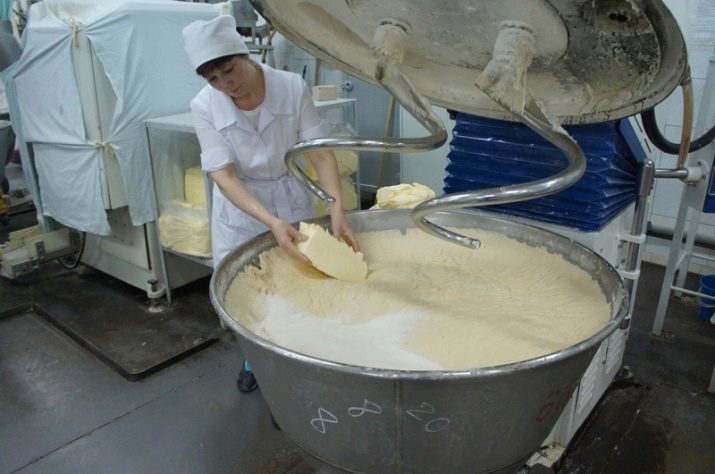
Requirements and professional skills
The baker, according to the standard job description, is a representative of the working personnel. This position can only be held by people with at least secondary vocational education in the relevant specialty. The strictly required skills include, of course, knowledge of the technology for the production of certain culinary products. This also includes the basic requirements for the thermal and steam baking modes.
You still have to study:
- how to determine the readiness of the dough for baking;
- how to evaluate the quality of finished products;
- how to adjust the baking duration;
- factors that determine the production of grain, and the exact calculation of such factors;
- methods for determining the productivity of furnaces;
- other specifics of specific equipment;
- industry and government standards.
You also need to know the different types of marriage, methods of preventing and eliminating it.
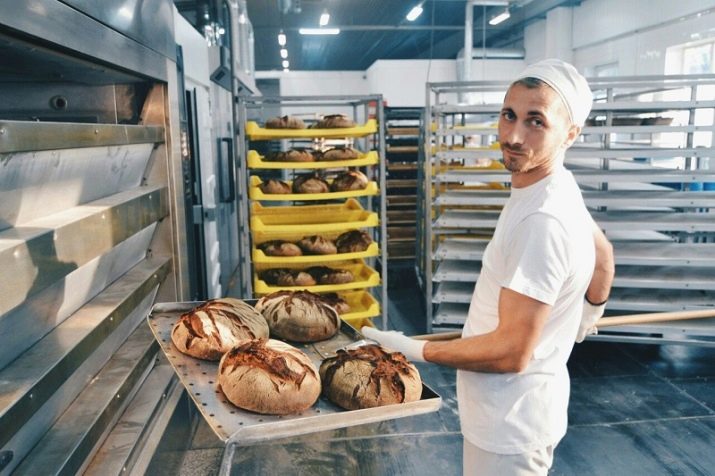
Responsibilities
The basic duties of a baker are enshrined in legislation, the organization's charter, job description, and internal regulations. Also worker dMust comply with the current orders of directors and other managers.
Bakers, according to the job description, are engaged in the process of baking bread... The same documents prescribe how many specific main types of products should be produced during a shift. The baked goods will have to be cooked in large shovel-planting ovens, electrical cabinets and conveyor ovens.
Additionally, the basic duties of a baker are:
- baking small-piece and diet rolls, buns;
- cutting dough blanks;
- removal of finished products;
- cleaning sheets;
- maintenance of final proofing cabinets;
- scalding;
- hearth lubrication;
- maintaining a stable steam and thermal regime;
- regulation of the pace of movement of the oven conveyors;
- fulfillment of orders of all managers;
- disinfection of equipment.
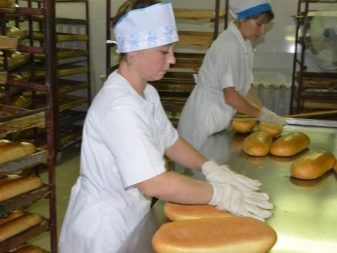
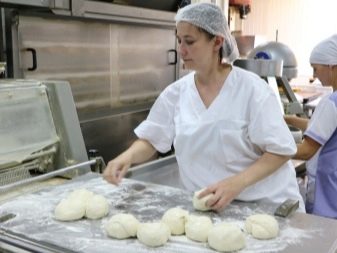
Job description
The baker must prepare the workplace for himself and keep it in good working order. But in addition to responsibilities, he has, which is important, and rights. Bakers can come up with initiatives to improve work, to punish other workers who are guilty of something. They are given the right to demand from other structural divisions of the organization and their employees all the necessary information, without which it is difficult to work. Bakers have the right to familiarize themselves with all orders, other acts of the organization that affect their work.
Moreover, there is the right of preliminary acquaintance with the draft administrative decisions. There is also the right to seek assistance in creating the necessary conditions for full-fledged work. The other powers of the baker are the same as those of other employees and are established uniformly by the labor code.
The baking workers are responsible for:
- for poor performance or complete failure to fulfill their duties;
- for administrative, criminal and civil offenses (in accordance with the legislation);
- for causing material damage to the organization (the limits of compensation are stipulated by law).
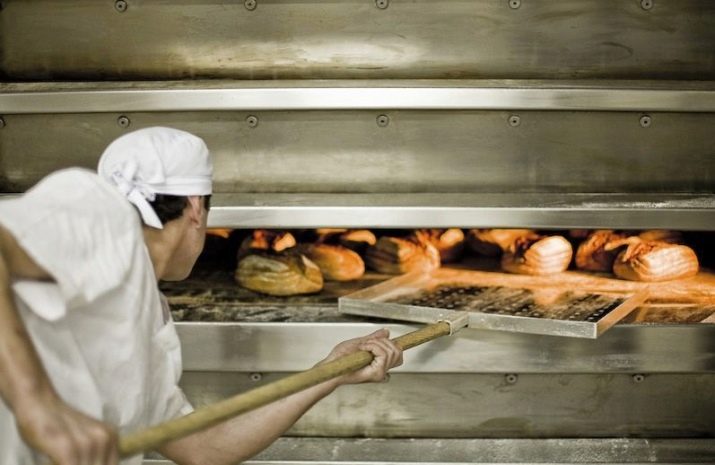
The job descriptions for bakers working on electric ovens also indicate additional responsibilities:
- placing dough pieces on sheets;
- manual cutting of blanks;
- rolling of trolleys;
- bookmarking of sheets in the working chamber;
- retrieving sheets from there.
The job descriptions may stipulate engaging employees in overtime work. The scope of such work must not violate the labor legislation of the Russian Federation. Sometimes the offenses for which the baker is punished are also concretized. This includes all attempts to use their office functions and capabilities to obtain benefits to the detriment of the organization.
It is also forbidden to deceive management about the degree of readiness of work and about the actual production of bread, about the real consumption of raw materials and resources.
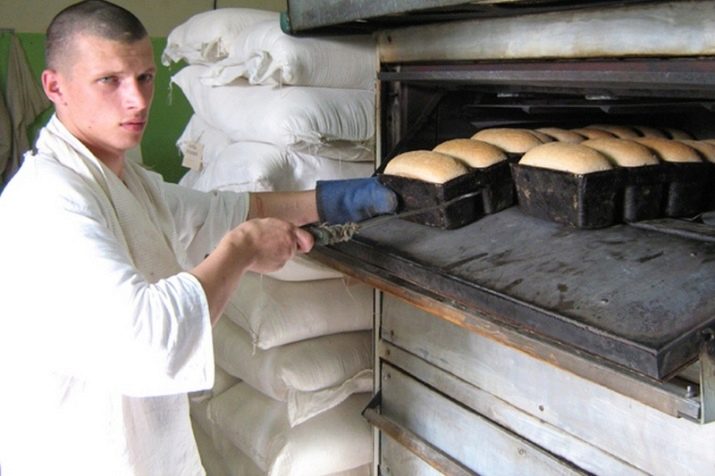
Education
You can study to be a baker, planning to work at an ordinary bakery or in an ordinary city bakery, in an ordinary technical school or college. There are a number of suitable specializations:
- “Master baker”;
- "Manufacturer of bakery products";
- “Baker on a complex mechanized line”.
But getting 3 or 4 digits is not the limit.... It is almost impossible to get a job in an elite restaurant or make a serious career without a higher specialized education. It is recommended to enroll in higher education institutions that train really good professionals. There are such universities in several cities:
- Moscow (University of Food Production and University of Technology and Management);
- Kemerovo (Technological University of Food Industry);
- Krasnodar (Food Institute of the Kuban Technical University);
- Saratov (Agrarian University).
Residents of Moscow can enter the College of Economics and Technology No. 22 or the College of Services No. 3. A good alternative to them is Food College # 33. In St. Petersburg, bakers are trained by the College of Food Technologies and the College of Business and Technology at St. Petersburg State University. In Kazan, the College of Small Business and Entrepreneurship conducts appropriate training, and in Saratov - the Financial and Technological College at the State Agrarian University.
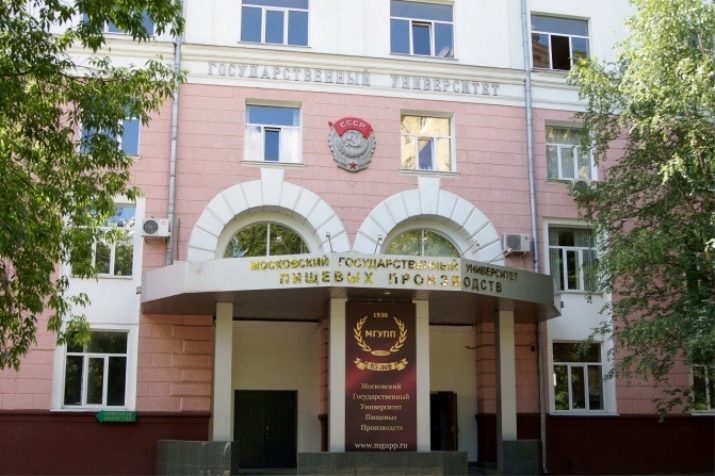
average salary
The job of a baker is quite difficult. At the same time, in various regions of Russia, this specialist receives approximately the same salary. Working according to a standardized schedule, you can count on an income of about 30 thousand rubles a month. In the Russian capital, even lightly loaded employees receive 25-26 thousand rubles. In remote, hard-to-reach places, bakers are paid about 20,000, the same rates in single-industry towns and regional centers. But in major industries in megacities, the income of bakery employees can rise to 45-47 thousand rubles.
Career
A beginner (apprentice baker) can become a full-fledged baker quickly enough. By increasing your professionalism, you can gradually become the manager of a bakery or even the owner of your own business. The intermediate stage between the apprentice and the full-fledged baker is the position of the assistant baker.
Almost all people who get a job without experience and do not have a "cool" education that open all doors have to go through such stages. Assistants perform the same duties as “official” bakers, but their status and level of pay are clearly lower.
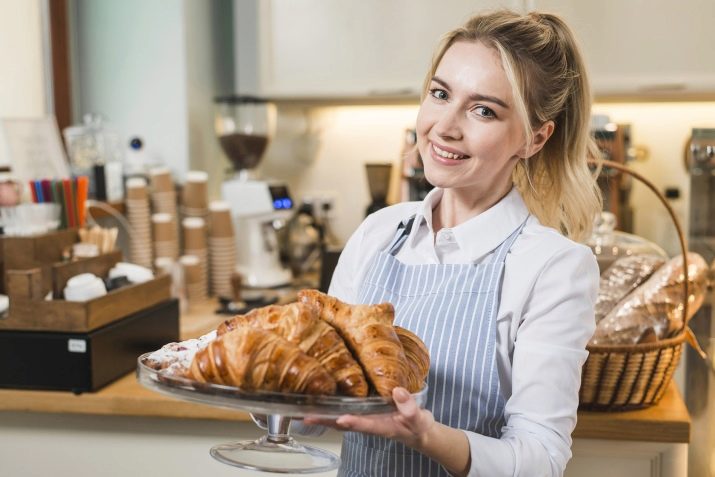
You can learn more about how bakers are taught below.








